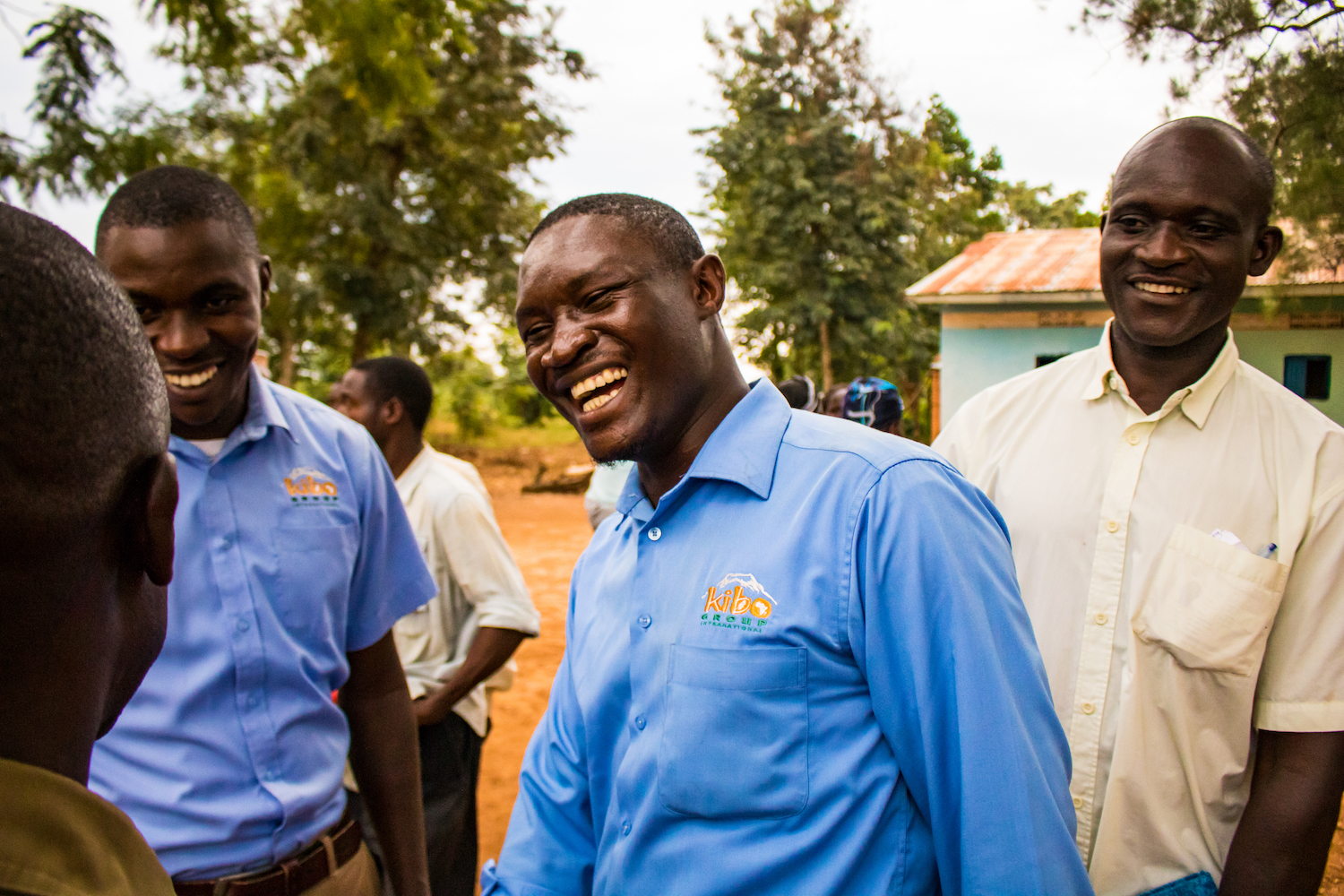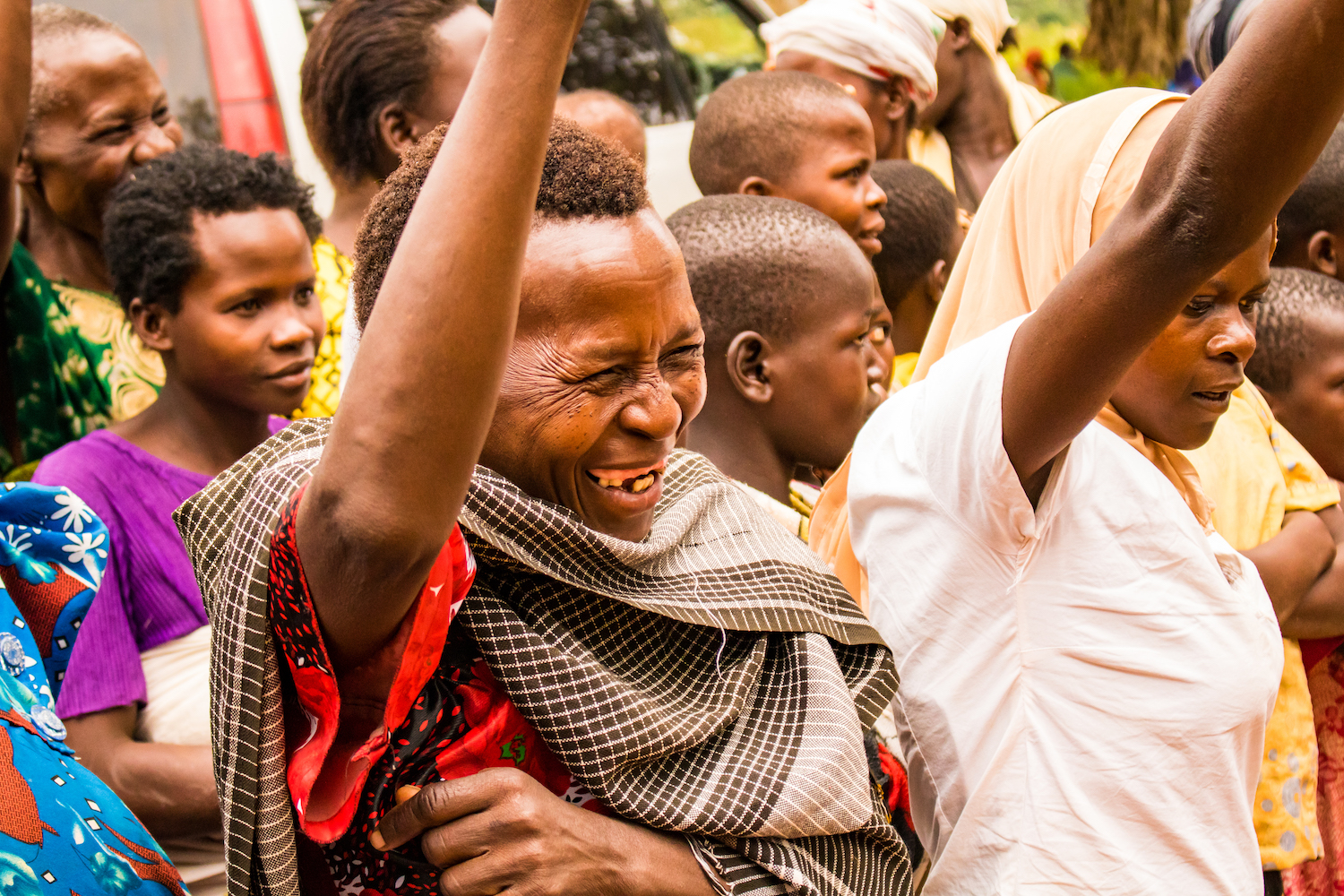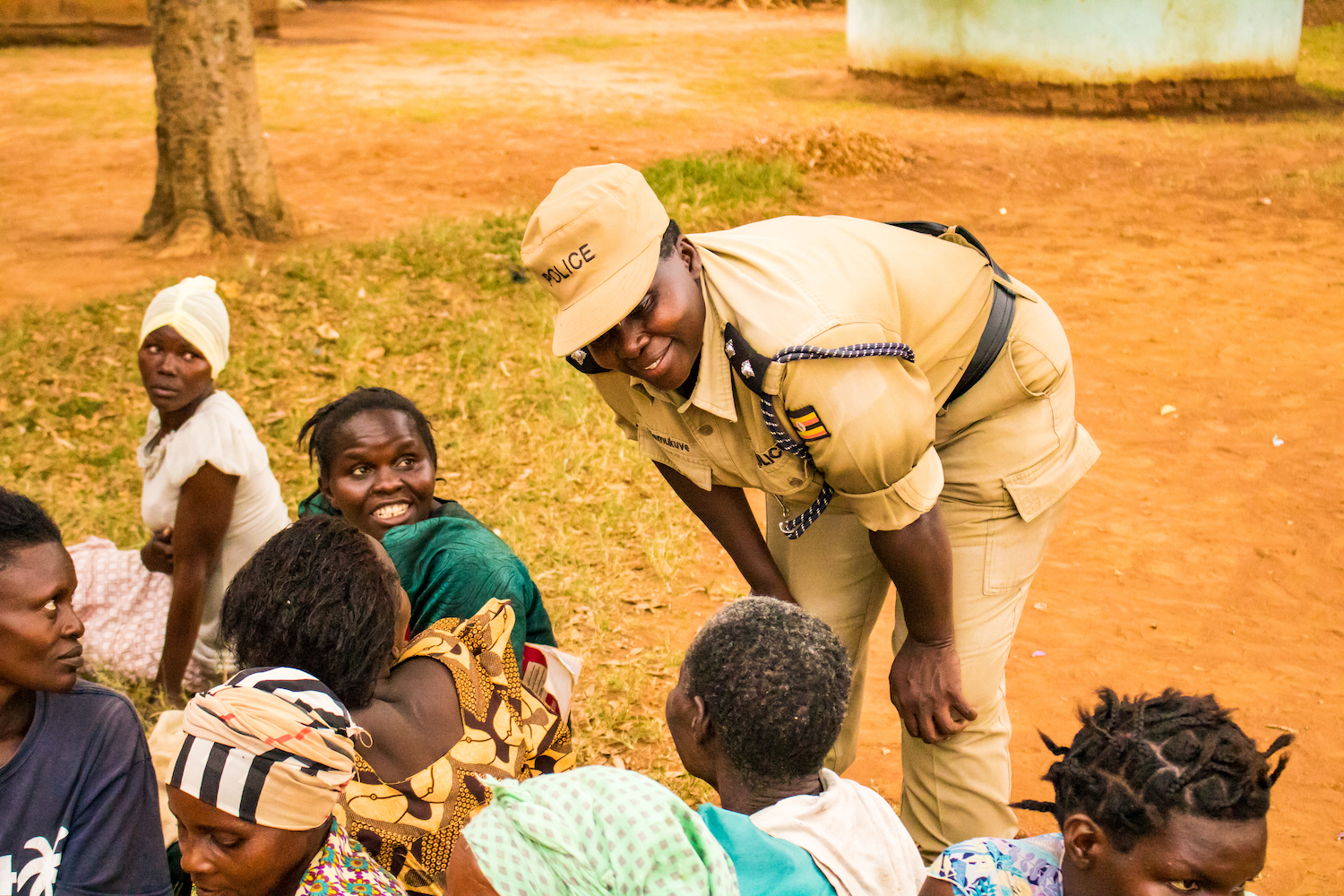How to gross out a village in 5 easy steps
At Kibo, we talk about gross things every day. Three times a week, our CLTS (Community-Led Total Sanitation) team drives to villages across the Busoga region to talk about poop. It’s our specialty. We’ve made talking about poop into an art form. We are masters at convincing people of the importance of hygiene and sanitation because of one simple fact: If development organizations fail to speak openly about gross things, progress is unlikely, and people can die. Loving a person or a village means participating in their lives — even the gross parts that don’t look good in a brochure or an article.
IF DEVELOPMENT ORGANIZATIONS FAIL TO SPEAK OPENLY ABOUT GROSS THINGS, PROGRESS IS UNLIKELY, AND PEOPLE CAN DIE.
Hygiene and sanitation certainly require scientific knowledge, but most of the battle is social and psychological. For a community to come together to change its behavior, they need to know why change is important. We call this transformation of thought patterns “triggering.” Our CLTS team’s approach to triggering is complex and multifaceted, but it all starts with grossing people out. Here’s how we do it:
*Warning: Sustainable development is not for the faint of heart — or the weak of stomach.
Tom Ngobi heads our CLTS (Community-Led Total Sanitation) project and often leads triggering sessions with partner communities.
1) Use visual (and olfactory) aids
The first part of triggering in a new village is called the walk of shame: a tour of open defecation around the community. This gives our staff the opportunity to gauge how problematic open defecation is in the village, and it instills a healthy dose of guilt in the community at large.
During the walk of shame, our staff shocks the community by physically removing some fresh human feces to use later in the presentation. The process is disgusting, and when the community sees their visitors handling the fecal matter, their shameful activity is made public. They see that what they thought were private actions actually affect the entire community, including guests. In a culture that values hospitality, the message is resoundingly clear: We wouldn’t need to do this if you used a latrine.
During the presentation, our CLTS staff places the feces before the group. Everyone gasps and takes a step back. The smell fills the air. People cover their noses and mouths. Some try to run away, but the staff challenges the village: If visitors can handle being so close to the feces, so can the people who produced it.
2) Make it real
With the feces at center-stage, it’s time to show the community how open defecation affects their daily lives. It’s not enough to be grossed out. The community needs to associate their disgust with their daily life problems, including illness and even death.
After a few minutes of exposure, flies begin to circle around the feces. On hot days, they audibly swoop around the mass. To demonstrate why open defecation is such a problem, our staff places a bowl of cooked rice next to the fecal matter. The staff sprinkles paprika on the feces. The flies drift from the fecal matter to the food, and the community members cringe as they see the rice turn from white to red as the flies carry the paprika from the feces to the food. The horrifying reality sinks in: It’s in our food, too.
During triggering, the CLTS staff uses a variety of visuals and exercises to communicate the ripple effects of open defecation — and it works. They involve volunteers from the community and ensure that all of their props come from the community itself. No doubt lingers in the minds of the observers: When I defecate in the open, I make my neighbors, my children and myself sick.
3) Show them numbers
Sights and smells are certainly effective, but knowing that proper hygiene is in the economic interest of the community speaks volumes. That’s why our staff convinces the community that ending open defecation and constructing hygiene facilities will make everyone in the village healthier and wealthier.
Our staff calculates before the crowd exactly how much fecal matter the community produces. The results are repulsive. They then calculate how much the village spends on medicine, hospital visits and, sadly, funerals. In a village with poor hygiene, such costs exact a terrible toll. The community is disgusted by the number of preventable deaths that have occurred in their small village, but it is a different kind of disgust from seeing and smelling the feces. It is sadness. Everybody in the village has known people who died too young because of diarrhea or other illnesses transmitted by feces.
This type of disgust spurs action. Not only can the community prevent death and illness, they can also save money for themselves and their children. You can see the hope in their eyes. They can live longer and more fruitful lives. It’s all there, in the numbers.
4) Recruit help
Our CLTS team is extremely competent, but it never hurts to recruit some help. Recently, the staff started bringing police officers to triggering sessions. This gives community members a positive interaction with law enforcement in a culture that tends to distrust police. It introduces the notion that police officers exist not to arrest loved ones; they are an asset and a resource to make life better. Knowing the names of police officers gives the community points of reference to understand why they do what they do.
The police officers even offer some insights of their own. One officer smiles, greets the crowd and asks community members about their children. The other officer gently but firmly reads from the Ugandan constitution verbatim, informing the community that open defecation is illegal and can lead to years in prison. The community is astonished. The officer also explains why open defecation is illegal. If someone takes a knife and stabs their neighbor, they should go to prison, because their actions led to the death of a neighbor. Well, the officer explains, the same is true of open defecation. The actions of one person can spread disease and cause the death of another. Why shouldn’t they be punished for their negligence?
The officers made it clear that they don’t want to arrest anyone, and that they want to educate and inform instead. It’s partners like these that make sure that Kibo’s work will continue long after Kibo leaves the village.
5) Have fun!
For all the talk of death and disease, triggering sessions are a lighthearted affair. Poop jokes transcend language and culture. Even when discussing serious subjects, there is fun to be had. The key to a presentation that makes a real difference is keeping the audience on its feet and engaged. One of the most powerful things the Kibo staff can do is gather under a tree with a community and be grossed out together.










